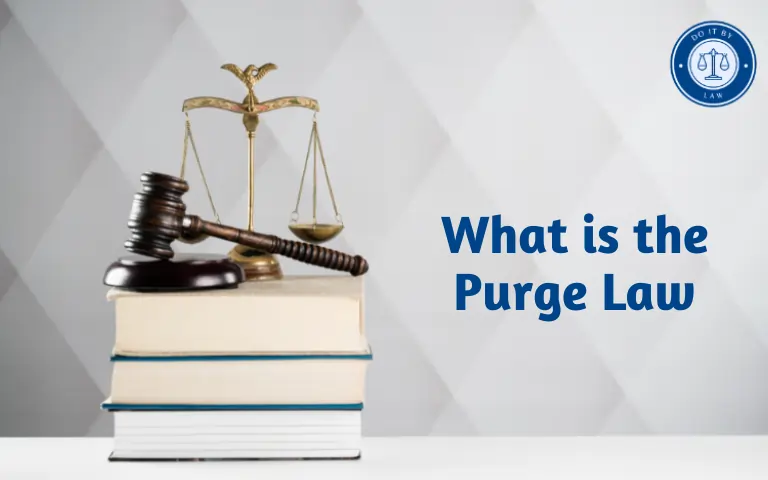Cohabitation Agreement: Protect Your Future
Are you living with your partner but unsure how to protect your assets or finances? A cohabitation agreement offers unmarried couples peace of mind by clarifying rights and responsibilities.
Unlike common law marriage, which Alabama stopped recognizing in 2017, a cohabitation agreement for unmarried partners ensures legal security. This guide covers creating a living together agreement, finding a cohabitation agreement lawyer, and avoiding common pitfalls.
For broader context, check our cohabitation laws guide, explore legal tips, or visit our home page. Ready to safeguard your future? Let’s get started!
Table of Contents
What Is a Cohabitation Agreement?
A cohabitation agreement is a legally binding contract between unmarried partners that outlines their rights and responsibilities, such as property ownership, financial obligations, and dispute resolution.
Unlike common law marriage, which may automatically grant marital-like rights in some states, a cohabitation contract does not assume marital status. This makes it a critical tool under cohabitation laws for protecting cohabitation rights.
In Alabama, where common-law marriage recognition ended in 2017, a cohabitation agreement is essential to safeguard assets and clarify expectations. For deeper insights, explore Nolo’s cohabitation guide or our Common Law Marriage in Alabama guide.
Core Components of a Cohabitation Agreement
A cohabitation agreement for unmarried partners typically includes:
- Property Rights: Specifies who owns assets like homes, cars, or savings, preventing disputes if the relationship ends.
- Financial Obligations: Defines how shared expenses, such as rent or utilities, are split.
- Legal Binding: When notarized, ensures cohabitation agreement enforceability in court, offering legal protection.
Why It’s Different from Common Law Marriage
Unlike common law marriage, which may grant spousal rights based on cohabitation and intent, a living together agreement is a proactive contract. In states like Texas, common-law marriage requires specific criteria, but Alabama’s cohabitation laws offer no such protections post-2017. A cohabitation contract fills this gap by providing tailored agreements.
Key Features at a Glance
| Component | Description | Why It Matters |
|---|---|---|
| Property Division | Details asset ownership and division | Prevents disputes over shared or individual property |
| Financial Duties | Outlines expense responsibilities | Clarifies who pays for what, reducing conflicts |
| Enforceability | Notarized for legal validity | Ensures court recognition if disputes arise |
Benefits of a Cohabitation Agreement
A cohabitation agreement offers:
| Advantage | Why It Helps |
|---|---|
| Dispute Prevention | Clarifies ownership |
| Legal Protection | Enforceable in court |
| Financial Clarity | Defines shared costs |
- Clarity: Avoids assumptions about rights under cohabitation laws.
- Protection: Safeguards personal assets, unlike community property laws for married couples.
- Peace of Mind: Reduces stress by setting expectations, especially in states like Alabama.
For more, visit our legal tips or home page.
When to Use a Cohabitation Agreement
Consider a cohabitation agreement if you:
- Own significant assets, like property or investments.
- Share financial responsibilities, such as rent or bills.
- Want to avoid disputes in case of a breakup, as cohabitation laws offer limited protections.
Consult a cohabitation agreement lawyer for guidance (Avvo’s legal help).
Steps to Create a Cohabitation Agreement
Creating a cohabitation agreement is a straightforward process that protects cohabitation rights for unmarried couples. This legally binding cohabitation contract clarifies property, finances, and responsibilities, ensuring security under cohabitation laws.
In Alabama, where common law marriage is no longer recognized post-2017, a cohabitation agreement for unmarried partners is essential.
Below, we outline clear steps to craft a cohabitation agreement sample, with tips to ensure cohabitation agreement enforceability. For more, explore our Common Law Marriage in Alabama guide, browse legal tips, or visit our home page.
Step-by-Step Guide
- Identify Assets and Debts
List all property, such as homes, cars, or savings, and debts like loans or credit cards. This ensures clarity in your living together agreement and prevents disputes. Use tools like LegalZoom’s asset templates for guidance. - Set Financial Terms
Agree on who pays for shared expenses, like rent, utilities, or groceries. A cohabitation contract should detail these roles to avoid conflicts, especially under cohabitation laws that offer no default protections. - Consult a Lawyer
Hire a cohabitation agreement lawyer to review your agreement for compliance with state laws. In Alabama, legal expertise ensures validity. Find professionals via Avvo’s legal help. - Notarize the Agreement
Notarization strengthens cohabitation agreement enforceability, making it legally binding in court. This step is critical for a cohabitation agreement for unmarried partners to hold up in disputes. - Review and Update Regularly
Revisit your living together agreement after major life changes, like buying property or having children, to keep it relevant. Templates on our legal tips can help.
Quick Steps Overview
| Step | Action | Why It Matters |
|---|---|---|
| List Assets | Document property and debts | Clarifies ownership |
| Define Terms | Set financial responsibilities | Prevents financial disputes |
| Legal Review | Consult a cohabitation agreement lawyer | Ensures state compliance |
| Notarize | Validate with a notary | Strengthens cohabitation agreement enforceability |
| Update | Revise as needed | Keeps agreement current |
Tips for Success
- Be Specific: Detail all assets and roles in your cohabitation agreement sample to avoid ambiguity.
- Communicate Openly: Discuss terms with your partner to ensure mutual agreement.
- Use Templates: Start with a cohabitation agreement sample from trusted sources like our home page or Nolo’s cohabitation resources.
- Plan for Breakups: Include terms for asset division in case of separation, as cohabitation laws don’t provide defaults.
Why It’s Essential
A cohabitation agreement protects against risks like:
- Property Loss: Without a living together agreement, assets may not be divided fairly (FindLaw’s property laws).
- Financial Disputes: Unclear expense roles can lead to conflicts.
- Legal Gaps: In Alabama, no automatic rights exist without a cohabitation contract.
Start crafting your cohabitation agreement today to secure your future!
State-Specific Rules for Cohabitation Agreements
Cohabitation agreements are essential for unmarried couples, but their requirements and enforceability vary under state-specific cohabitation laws. Unlike common law marriage, which some states recognize, a cohabitation contract provides tailored protections for cohabitation rights.
In Alabama, where common-law marriage ended in 2017, cohabitation agreements are critical. Below, we explore key state differences to help you craft a cohabitation agreement for unmarried partners. For broader context, see our Common Law Marriage in Alabama guide or browse legal tips.
State Variations
| State | Cohabitation Agreement Status | Key Requirement |
|---|---|---|
| Alabama | No common-law marriage; agreements critical | Notarized for cohabitation agreement enforceability |
| Texas | Supports agreements and common-law marriage | Clear terms for property (Texas Law Help) |
| North Carolina | No common-law marriage; agreements enforced | Written contract (NC Courts) |
| Florida | No common-law marriage; agreements needed | Legal review advised (Florida Courts) |
- Alabama: Without common law marriage, Alabama cohabitation agreements are vital for property and financial protections. These contracts must be notarized for cohabitation agreement enforceability (Alabama Statutes).
- Texas: Supports Texas cohabitation agreement alongside common-law marriage, which requires cohabitation and mutual intent. A cohabitation contract clarifies rights beyond marriage laws (Texas Law Help).
- North Carolina: North Carolina cohabitation agreement protects couples without common-law marriage. Courts enforce written agreements for property or support (NC Courts).
- Florida: No common-law marriage; Florida cohabitation agreement ensures cohabitation rights for asset division or debts (Florida Courts).
State Comparison
Why State Rules Matter
State-specific cohabitation laws determine how cohabitation agreements are enforced. A cohabitation agreement lawyer can ensure compliance, especially in states like Alabama with no default protections. Visit Avvo’s legal help for expert advice.
Tailor your cohabitation agreement to your state. Start now!
Avoiding Common Pitfalls
Creating a cohabitation agreement requires care to avoid mistakes that could undermine its effectiveness. A poorly drafted living together agreement may fail under cohabitation laws, leaving cohabitation rights unprotected.
In Alabama, where common law marriage is obsolete, these errors can be costly. Below are key pitfalls to steer clear of when drafting your cohabitation contract. For related insights, see our Common Law Marriage in Alabama guide.
Common Mistakes
- Relying on Verbal Promises: Only written cohabitation agreements are legally binding. Verbal agreements lack cohabitation agreement enforceability in court (Nolo’s legal tips).
- Skipping Legal Review: Without a cohabitation agreement lawyer, errors in terms or compliance can void the contract. Legal expertise is key (Avvo’s legal help).
- Not Updating Terms: Failing to revise your living together agreement after life changes, like new property or debts, can make it irrelevant. Regular updates ensure validity (LegalZoom’s advice).
- Vague Terms: Ambiguous language in a cohabitation contract can lead to disputes. Be specific about assets and responsibilities.
Tips to Avoid Pitfalls
- Document Everything: Use a cohabitation agreement sample for structure, available on our legal tips.
- Notarize: Ensure cohabitation agreement enforceability with notarization.
- Seek Expertise: A cohabitation agreement lawyer can prevent oversights, especially under Alabama cohabitation laws.
Don’t risk your cohabitation agreement. Get it right today!
Conclusion
A cohabitation agreement is a vital tool for unmarried couples to secure assets, clarify finances, and avoid disputes. Whether drafting a living together agreement or consulting a cohabitation agreement lawyer, this guide empowers you to navigate cohabitation laws with confidence.
Unlike common law marriage, which is no longer recognized in Alabama, cohabitation agreements provide tailored cohabitation rights. From understanding state-specific rules to avoiding common pitfalls, you’re now equipped to protect your future.
Dive into our Common Law Marriage in Alabama guide, explore legal tips, or visit our home page for more resources. Don’t wait—create your cohabitation agreement for unmarried partners now!





